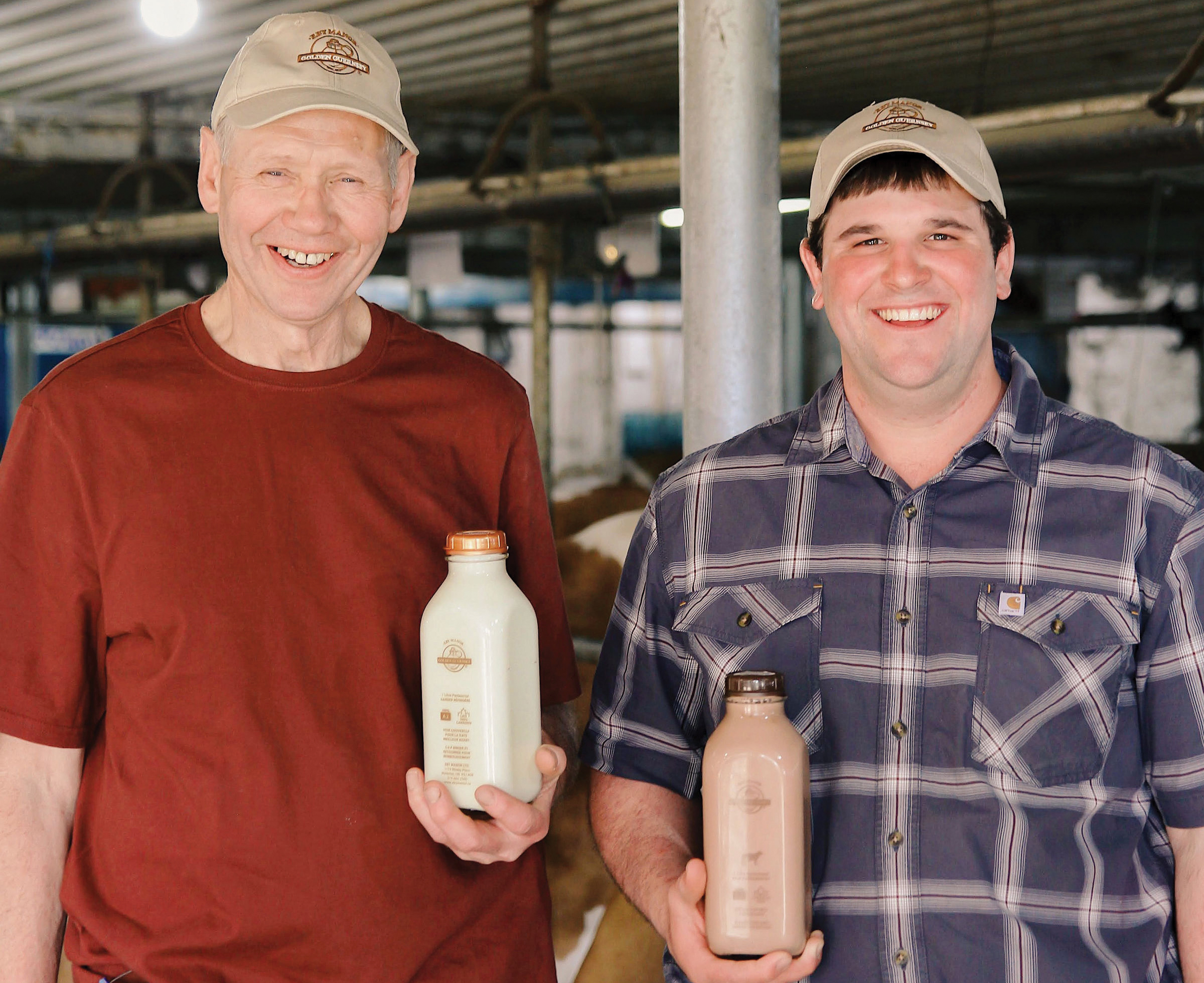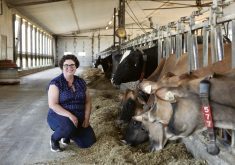Having trouble hiring? Worried about employee retention? Here’s a new approach to consider: mission- focused employment. There’s been a shift in today’s workforce. Employees are increasingly looking for career opportunities with like-minded employers who match their personal values, like health, the environment and animal welfare.
Attracting potential employees to employers that align with their values is a new challenge facing the labour market. And that’s where the agri-food sector — one of the most sustainable sectors and Canada’s largest employer — has the greatest opportunity.
“When you’re talking to young talents coming into agriculture, they are interested in the story that agriculture is telling,” says Trevor Heck, president of Syngenta Canada. “But what they really want to know is, do my values as an employee align with the industry and do they align with the organization. And in agriculture, we have to be willing to tell those stories or have those stories prepared as part of the recruitment.”
Read Also

Land title transfers: the Wild West
Know the risks involved when creating land titles.

According to the Canadian Agricultural Human Resource Council, 16,500 agricultural jobs went unfilled in 2017 across Canada and it’s estimated the shortfall will grow to 123,000 by 2029.
“We have to do everything we can to make our industry attractive,” says Bill Greuel, CEO of Protein Industries Canada. Leveraging the sustainability of Canada’s plant protein industry to attract talent is already on Greuel’s radar as he predicts Canada’s plant-based food sector will need 17,000 new employees to support the industry’s growth over the next 10 to 15 years.
Greuel is well aware the agri-food sector, including the plant protein industry, is sitting on a huge untapped talent pool of employees who want to work in a sustainably focused environment.
However, Greuel also points out that because the term sustainability means something different to everyone, agri-food employers need to make their sustainability efforts clear by outlining their commitment, showing data to support their practices, and entrenching their approach into their culture.
“We are a sustainable sector; the challenge is to provide the data to prove it and incorporate our values in a way to attract those looking for employment from their own values-based perspective,” Greuel says.
Work to inspire
With a vision to be the most sustainable protein company on earth, Maple Leaf Foods has embraced the values-based employment motivation and has extended it to enmesh sustainability into every part of the company.
“We talk about and act sustainably every day at our company, and many people tell us that it makes their work deeply satisfying. It binds our culture together,” says Peter Neufeld, vice-president of leadership and human resources at Maple Leaf Foods.

Neufeld says integrating their sustainability message into their hiring and recruiting efforts is paying off.
“Being a part of Maple Leaf means you will do meaningful work with a purpose. We know through our talent attraction efforts that people find our sustainability commitment inspiring — we are eager to hire inspired people,” says Neufeld.
Maple Leaf Foods became the world’s first major carbon-neutral food company in November 2019 and the company continues to enhance its sustainability efforts. It is currently creating a sustainability focused employee resource group to give their team members more opportunities to participate in achieving their sustainable vision through meaningful action.
Syngenta Canada is using a similar approach to attract leadership and talent from adjacent industries and outside countries. “For young people, sustainability is a really important element,” Heck says. “It’s becoming a very important part of recruiting the right talent.”
On-farm approach
Some businesses practice their commitment to sustainability every day but haven’t created a specific mission or values statement. Most Canadian farmers fit into this category even though environmentally sustainable practices are central to every aspect of their business.
For farm employers looking to attract new hires, maybe it’s time to take stock and promote what makes their farm sustainable to attract those like-minded employees.
Farmers like Jim Eby have taken a “show, don’t tell” approach to sustainability. Eby, with his family, owns Eby Manor Farm, a 130-head dairy farm and retail store in Waterloo, an hour west of Toronto, based on a unique Guernsey A2 protein milk business with distribution across Ontario.
Eby says that while sustainability is a core value in their day-to-day business, it isn’t formally acknowledged in their business plan, marketing or employee recruitment.
The family has implemented sustainable measures into their on-farm practices and retail business because they believe in being good stewards. But they aren’t going unnoticed. All Eby Manor milk is packaged in reusable glass bottles, something that customers regularly comment on.

“Customers connect with the concept of the glass bottles and appreciate our efforts,” says Eby, who regularly engages with customers visiting their on-farm retail store, answering questions about their farm practices, milk production and animal welfare. “People are often confused about food and farming terminology and we have the opportunity to help them understand.”
Eby Manor employs two full-time and four part-time employees to help manage the farm, retail business and dairy deliveries — and they’ve never had a problem finding help. Eby says he regularly receives resumés from interested applicants, mostly in their early 20s and very few of them with a farm background: “We’ve never intentionally used our sustainable values to attract employees or customers, but people can see for themselves our attitude to animal welfare and environmental sustainability. And that appeals to everyone.”
Eby believes a focus on sustainable values could be used as a recruiting tool, and Greuel sees a similar opportunity. “Hiring to match values isn’t new. What is new is like-minded people seeking out farms, companies and organizations that match their priorities.”
It does demand honesty, Greuel says. “You have to be real and genuine about it.” and employers must avoid “greenwashing” or making false claims.
Instead, though, the real challenge may be defining what sustainability means to the business. “There’s a new generation of employees that we can tap into,” Greuel says. “If we get it right, we will be successful — because agriculture has potential.”















